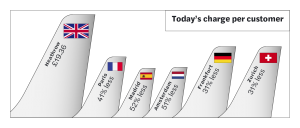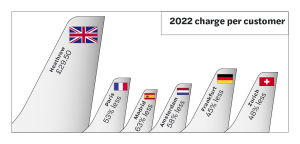Airline CEO letter to Prime Minister – Covid travel restrictions
13.12.21
Dear Prime Minister,
As leaders of UK airlines, we are deeply concerned about the haphazard and disproportionate approach by Government to travel restrictions following the emergence of the Omicron variant.
Ten days ago, you rightly said that vaccines and boosters remain our best line of defense against variants of Covid-19 and highlighted the need for proportionate travel measures. It is increasingly likely that Omicron will soon be the dominant variant in the UK, and the Health Secretary has already said it is circulating in the UK independent of international travel.
Whilst we fully recognise the need to take steps to contain the initial impact of the Omicron variant, travel has been singled out with the introduction of disproportionate restrictions. Further, pre-departure and upon-arrival testing clearly add very little value to our Covid protection, but unnecessarily disrupt Christmas for families as well as businesses while severely damaging the UK travel industry.
The Government must now take the following steps to support consumers and prevent the permanent scarring of our industry, which plays an essential role in the UK’s global economy and supports over 500,000 direct jobs in every corner of the country:
- All emergency testing for fully vaccinated passengers should be removed at the formal review on 20 December
- A package of bespoke economic support measures should be provided immediately to bridge the sector through this crisis
Only the UK requires pre-departure and post-arrival PCR tests, irrespective of vaccination status. Whilst we have heard much talk of cracking down on the ‘rip-off’ testing regime – charging up to £399 for a PCR test – we’ve seen precious little action, despite repeated promises.
We have also seen immediate problems with red list arrivals, with many customers booking hotels which either were not ready or had been double booked, requiring them to rebook and pay again. Many people are stranded abroad through no fault of their own, due to a policy that cannot be executed properly.
We and our customers feel sincerely let down, having believed a more pragmatic, evidence-led approach to travel, in line with the rest of the world, had been achieved and agreed by all concerned just a few months ago. Instead, the layering of additional travel restrictions, introduced at short notice without consultation or discernible strategy, have disrupted Christmas plans and severely undermined customer sentiment just before the crucial Christmas and New Year booking season (up to 30% of tickets are sold).
We urgently request you meet with us, to understand the problems that we and our customers are now facing because of these measures, which the Transport Secretary himself admitted risked ‘killing off’ the travel industry. We urge you to act now to prevent this from happening.
Yours sincerely,
- Andrew Flintham, Managing Director, Tui UK & Ireland
- Eddie Wilson, CEO, Ryanair
- Johan Lundgren, CEO, easyJet
- Jonathan Hinkles, CEO, Loganair
- Sean Doyle, CEO, British Airways
- Shai Weiss, CEO, Virgin Atlantic
- Steve Heapy, CEO, Jet2.com
- Tim Alderslade, CEO, Airlines UK



